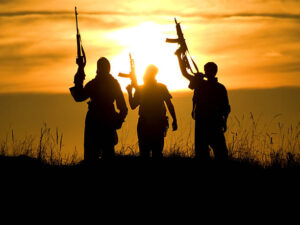
“Political Conflicts: The Ongoing Struggle for Peace and Human Rights”
In many regions of the world, political conflicts, such as civil wars, terrorism, and human rights abuses, continue to be a major issue. These wars frequently result in displaced people, violence, and misery, having an impact on both the countries involved and the larger global society. This article examines the numerous types of political disputes, their effects, and strategies for dealing with and averting them.

Civil wars are one of the most destructive forms of political conflict, often leading to massive displacement and loss of life. In 2020, there were 44 active armed conflicts, most of which were in Africa and Asia, according to the Uppsala Conflict Data Programme. Over 6 million people have been displaced and an estimated 400,000 people have died in the Syrian civil war since it started in 2011. In a similar vein, the ongoing violence in Yemen has resulted in more than 233,000 fatalities and more than 3.6 million displaced individuals.

Terrorism is another form of political conflict that has become increasingly prevalent in recent years. Over 19,000 people died in more than 8,400 terrorist attacks in 2020, according to the Global Terrorism Database. Most of these incidents took place in Nigeria, Iraq, and Afghanistan. The emergence of extremist organisations like ISIS and Boko Haram, which employ violence and fear to further their political objectives, has contributed to the surge in terrorism.
Human rights violations are also a significant form of political conflict, with governments and other actors committing atrocities against their own citizens. These violations include torture, extrajudicial killings, and forced disappearances, among others. According to the United Nations, there are currently over 80 million people who have been forced to flee their homes due to persecution, conflict, and human rights violations. The Rohingya crisis in Myanmar is one example of such violations, with the government committing acts of violence and discrimination against the Rohingya people, leading to their displacement and suffering.

Political wars have a significant impact on the entire world community, not just the countries in which they take place. The relocation that results from these conflicts frequently puts a strain on the resources of the nations around them and might result in humanitarian disasters. As displaced populations frequently don’t have access to basic medical care and sanitation, they can also result in the spread of disease. Political conflicts can also cause the instability of entire regions, which promotes the growth of terrorism and extremism.
Efforts to address and prevent political conflicts include diplomatic and military interventions, as well as humanitarian aid and development assistance. Diplomatic interventions can include negotiations, mediation, and peace talks, which seek to resolve conflicts peacefully. Military interventions, such as peacekeeping missions, can be used to prevent further violence and protect civilians.
Humanitarian aid and development assistance can also play a significant role in addressing the impact of political conflicts. This assistance can include providing food, shelter, and healthcare to displaced populations, as well as funding for education and economic development. By addressing the root causes of political conflicts, such as poverty and inequality, development assistance can help prevent future conflicts from arising.
However, there are also challenges to addressing political conflicts, including issues of sovereignty, political will, and resource constraints. In some cases, governments may be resistant to external interventions and may view them as a violation of their sovereignty. There may also be political barriers to addressing conflicts, with political leaders unwilling to make the necessary compromises for peace. Finally, resource constraints can limit the effectiveness of humanitarian and development assistance, particularly in contexts where resources are already scarce.
Conclusively, political conflicts, including civil wars, terrorism, and human rights violations, continue to be a major concern in many parts of the world. These conflicts have far-reaching impacts, affecting not only the countries where they occur but also the broader global community. Efforts to address and
Admin at The Pakistan Gazette

